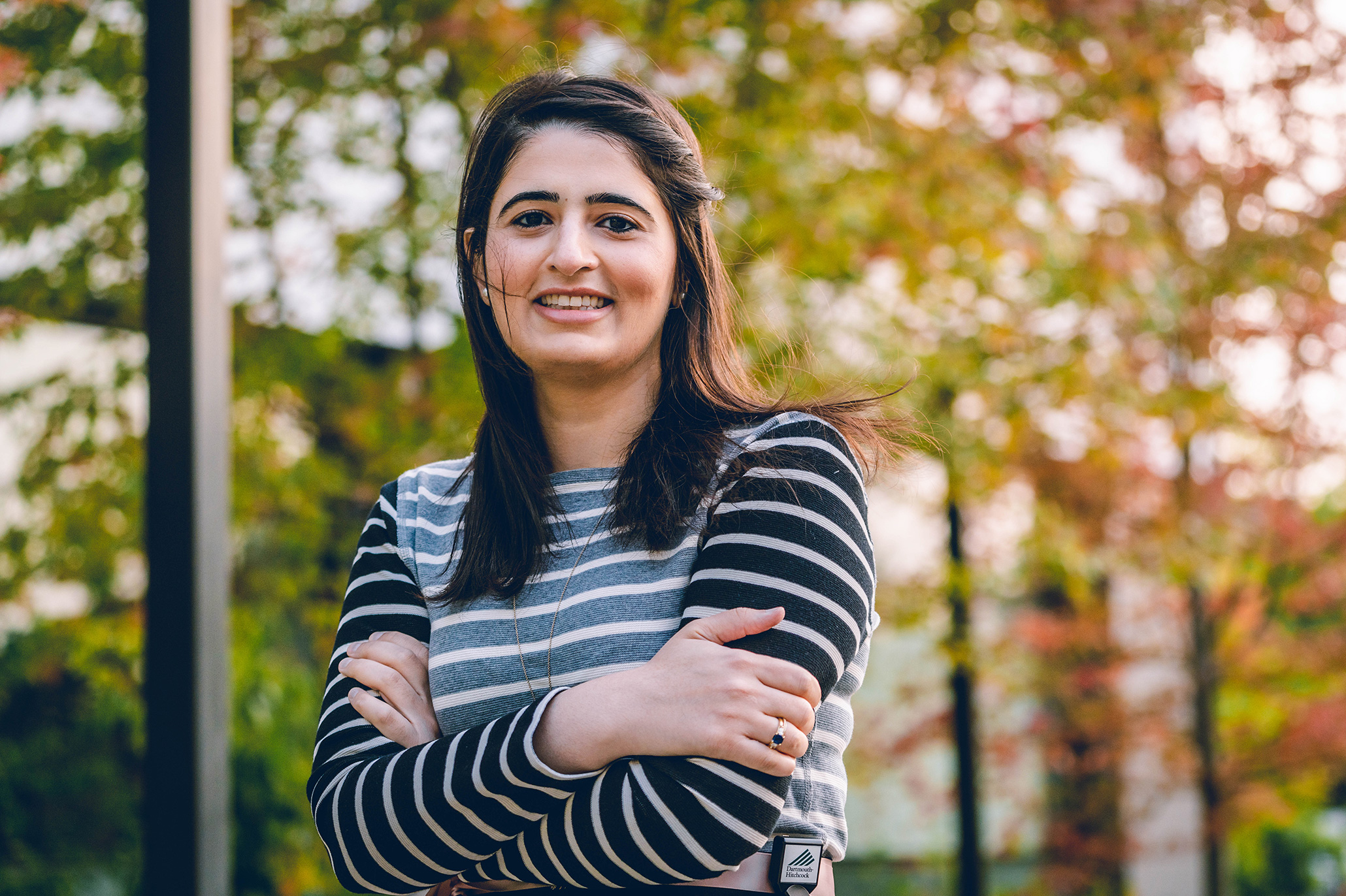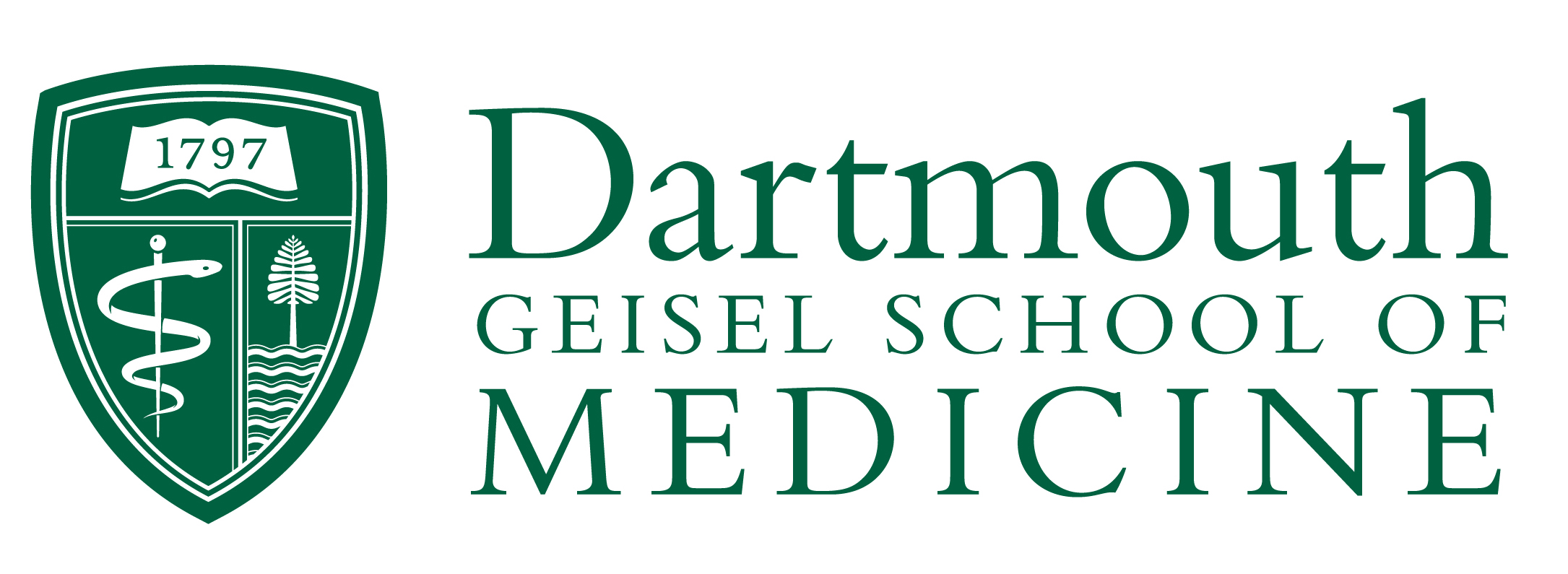
Yasmin Kamal ’22 harbors a fascination with medicine that began in childhood. Growing up alongside a sister with Down’s Syndrome and watching extended family in Pakistan suffer from a lack of easy access to healthcare, sparked an interest in neurodevelopmental disorders and a desire to help others.
Now, in her third year of medical school and with a PhD in computational tumor immunology from Geisel’s Quantitative Biomedical Sciences graduate program in hand, Kamal’s clinical interests have somewhat shifted, but her desire to make a difference remains. “I came to medical school wanting to work with kids with Down’s Syndrome and epilepsy, but when I began my rotation in the neurology clinic, it hit too close to home,” she confesses. “So now I’m focusing on oncology where I feel I can have more of an impact.”
Kamal hasn’t decided whether or not she’ll specialize in oncology or maintain a broader focus, but she remains committed to the field. Her dissertation—working with advisors Adjunct Professor of Biomedical Data Science Christopher Amos, PhD, and Assistant Professor of Biomedical Data Science Robert Frost, PhD—focuses on the use of computational approaches and genomics data to advance therapeutic treatments for cancer, particularly colorectal cancer. “Physicians have been realizing success in treating colon cancer with new immunotherapy drugs, but we don’t yet understand how these drugs influence a patient’s prognosis or alter their chances of experiencing a recurrence of the cancer following surgery,” she notes. And for reasons not yet clear, colon cancer is also on the rise in younger adults—something, Kamal says, that gives her research an added sense of urgency and purpose. She’s eager to begin having a positive influence on people’s lives, whether in a clinical setting, a research lab, or some combination thereof.
“I’ve always wanted to work with Doctors Without Borders, but I also feel that I can make a difference through my research by sharing knowledge and identifying new treatment options.”
Making healthcare more accessible is another crucial motivator. “My mother grew up in a remote village in Pakistan where access to healthcare was severely limited. My great aunt had schizophrenia—which wasn’t accurately diagnosed or treated—and my uncle went into diabetic ketoacidosis and passed away because getting to the nearest hospital was a four-hour drive. These outcomes could have been avoided, so as a future doctor, I’m committed to helping people get the care they need.”
At present, however, Kamal is focused on getting the help she needs to prepare for a career in medicine. “I’m a first-generation college student, so having mentors who support me is extremely important. Chris Amos and Rob Frost were phenomenal thesis advisors, and Erik Kobylarz, the director of Geisel’s MD-PhD Program, has been extremely generous in helping me learn to navigate between research and clinic time.”
Kamal concedes that completing medical school amid a pandemic has been a bit challenging. With classes being held virtually, it’s more difficult to become acquainted with classmates and more challenging to connect with patients. “I just completed my psych rotation and saw so many people who are suffering with mental health challenges because of the crisis,” she says. “You want patients to know you’re empathetic to their struggles, but when you’re wearing a mask, it’s harder to convey your empathy.”
On the other hand, says Kamal, earning an MD while dealing with COVID-19 has provided her with lasting memories. She recalls first-hand how everyone at Dartmouth came together to fight the pandemic, from the bench scientists she worked with on tumor immunology projects to the physicians on the inpatient units performing life-saving procedures while always wearing N-95 masks. “It will be interesting telling my grandchildren what it was like to receive my medical training during a pandemic.”
Written by Lori Ferguson




